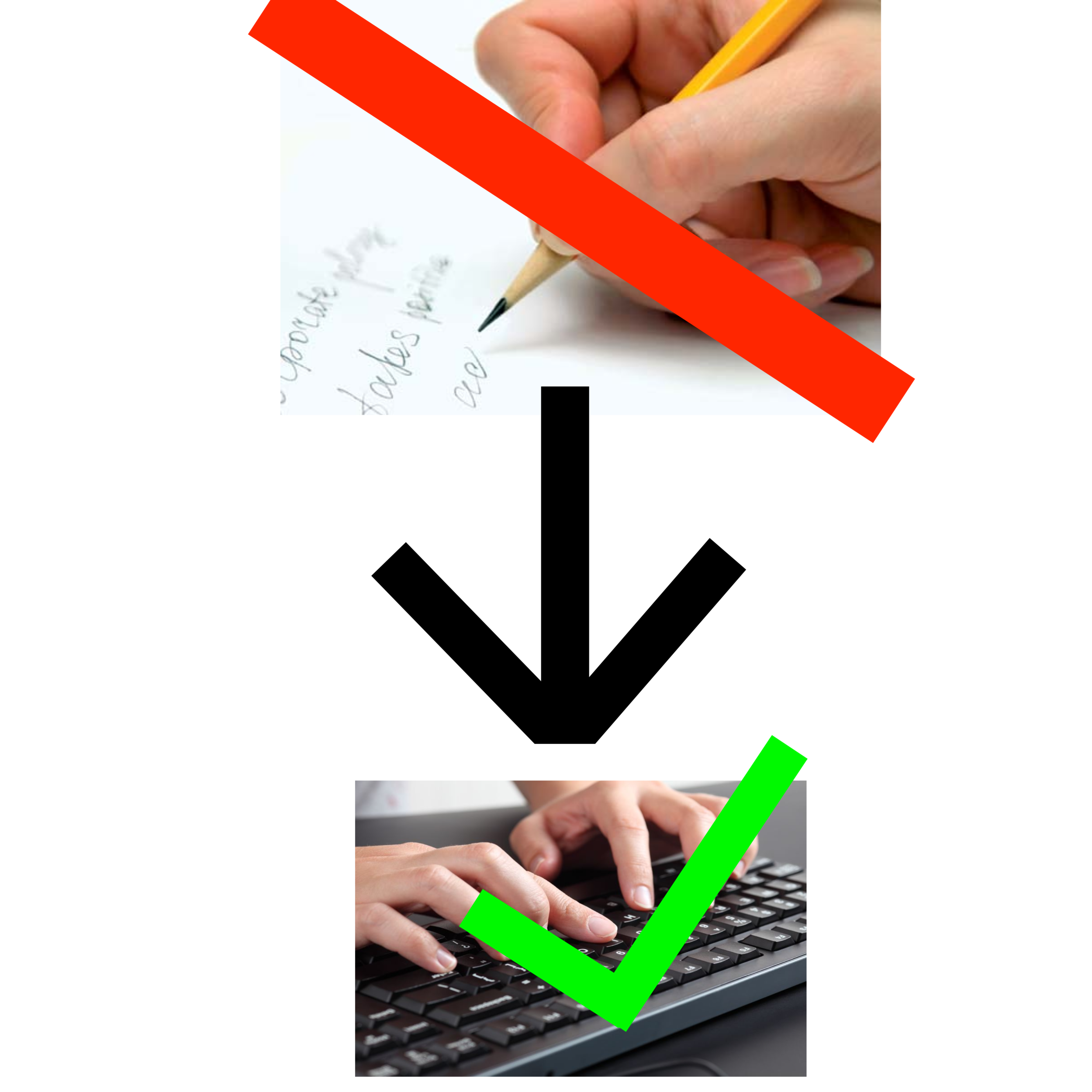The Unexpected Advantages of Handwriting
Everett A. Yau
Digital devices are a revolutionary invention. We use them for entertainment, research, communication, but most of all, we write on them. Every day, millions of people use their devices for writing anything from an email to a story to an article like this one. So much so, that we've begun to forget how we originally wrote, with pen and paper and hand. Surprisingly, the older way of writing could be more effective. Typing is used in many important tasks, and though we cannot substitute it in all of these cases, there are many where we can. We already use handwriting for many common tasks, such as taking tests or brainstorming. People should continue to handwrite, because it is beneficial for cognitive reasons such as improving memory, and it is also very important academic skill for many reasons.
Though it might seem inferior to its digital counterpart, handwritten notes boost memory of content in class. You might argue that typing allows more abundant notes, but two scientists Pam Mueller and Daniel Oppenheimer found out that, although it seems more effective, users taking notes on a device tend to take verbatim notes, which is worse for memorizing ideas and concepts in the long run. In the experiment, both types of note takers were given the same lecture, and 30 minutes later, they were tested on the content. They retained the same amount of information when it came to recalling facts, but when tested on ideas, the students with handwritten notes drastically outstripped the digital note-takers. This proves that, though digital notes has its benefits, its cons negate its pros; handwritten notes come out on top for better memory.
When students are on computers, being off-task is far easier then when they are doing pen and paper work. This can also be very distracting to other students, and hinders both of their learning ability. A study in a simulated classroom found that students near multitasking peers on digital devices during class scored worse on a test than ones who were not near multitaskers. In addition, another survey revealed that 92% of college students reported texting in class, which shows that devices can be easily misused.
We all know not everybody has immaculate handwriting, and some elect not to use it because they are self-conscious, or it is unlegible. Handwriting is a very versatile and important skill, because devices aren't always available, and handwriting can often be more convenient. We need to practice this skill, because if we don't practice, we won't get better. One argument against this is that, in the future, we won't need handwriting. While this eventually will be true, technology's advancements are often disappointing. We often overestimate the speed of our society, and until then, handwriting is very viable.
Our digital devices are clearly important and effective for many tasks. But when it comes to writing, doing it by hand is far superior to typing. Handwriting is an important skill for a multitude of reasons, from boosting memory, to being a more productive tool than typing. Therefore, we should advocate to use handwriting whenever possible, as opposed to typing.





